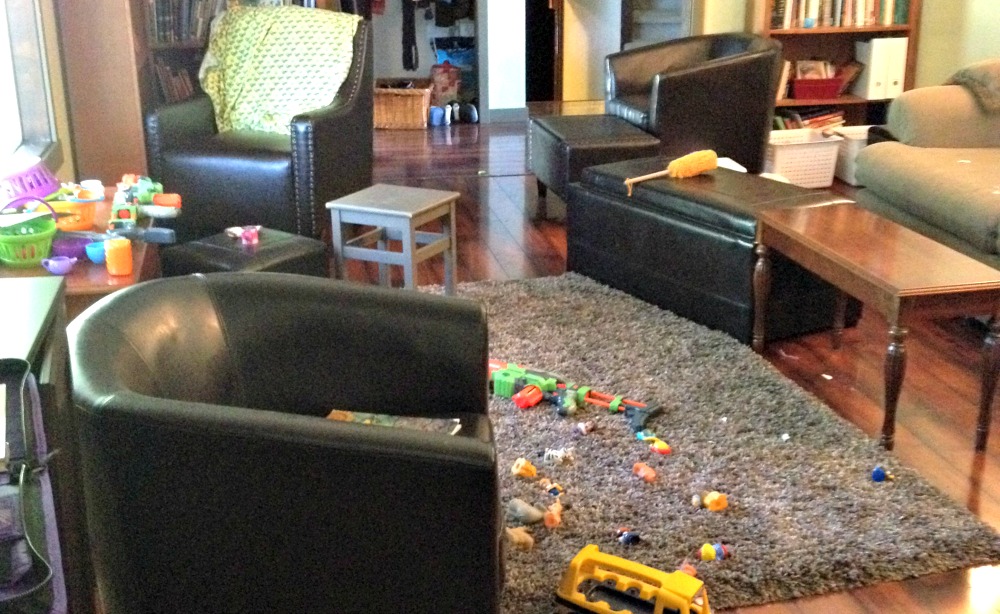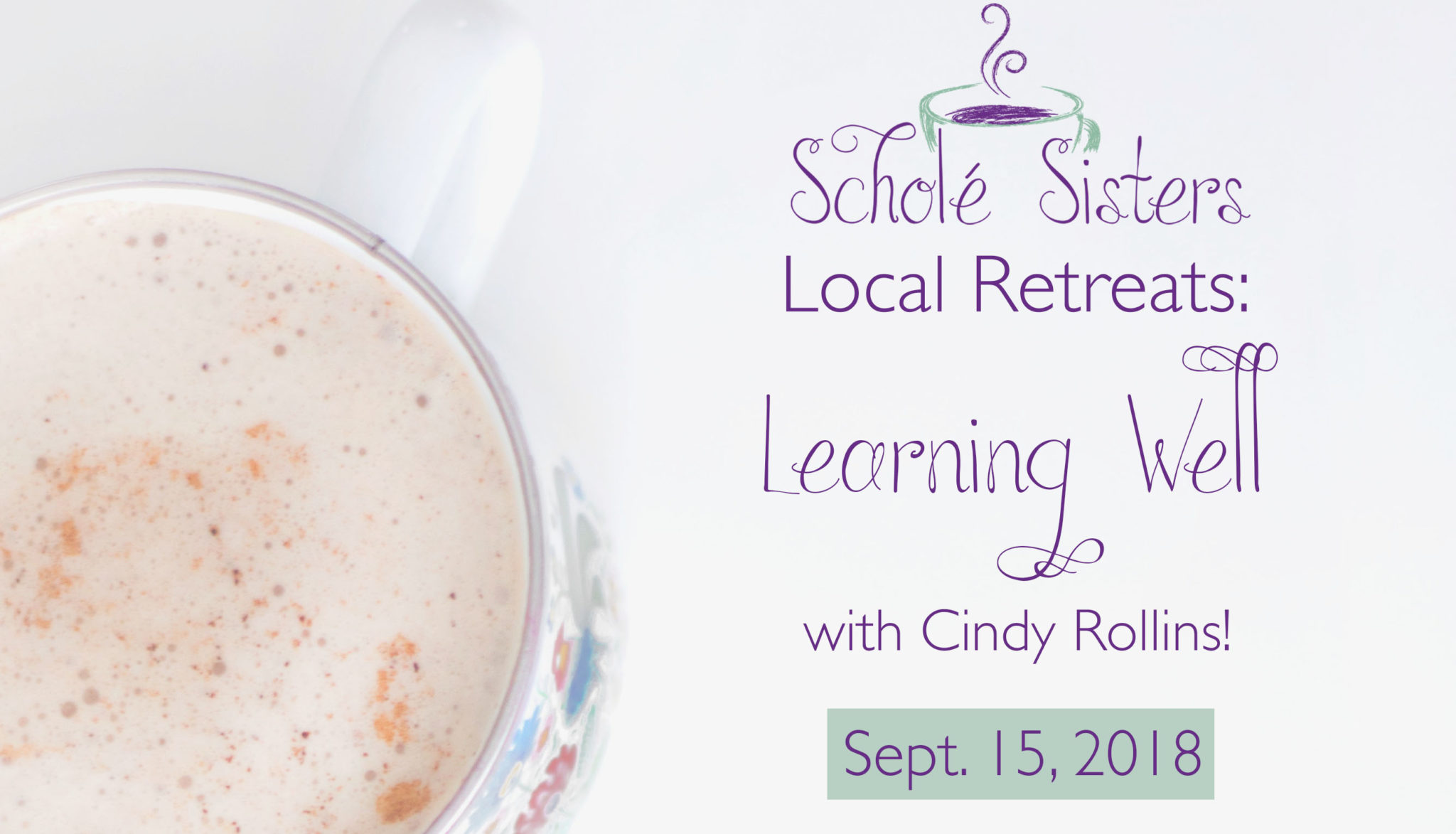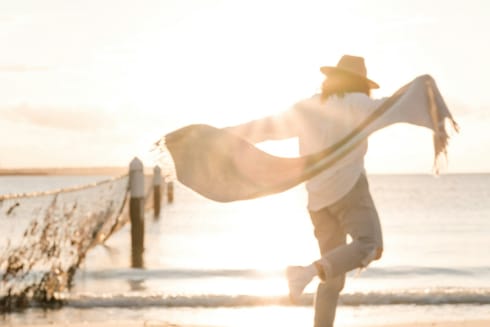Becoming a lifelong learner.
This started off as an introduction to my talk at the Learning Well retreat, but grew too unwieldily. It got the ax in my presentation, but now finds a home here. Learn more about the upcoming retreat at the end of the post!
So. When my oldest child was 5 years old – 10 years ago now! – I was twenty-six years old. I had read stacks of books about homeschooling because I was about to embark on the project of my lifework: educating my kids. I had been homeschooled and in the pride of youth I knew all the things I would NOT do. A few years prior my husband and I had been on the board of a classical school that never got off the ground, so we were back to homeschooling as Plan B. We were committed to giving our kids a well-rounded, meaningful, consistent, Christian education and recognized that classical education fit that bill. Since the school didn’t work, I was determined to figure out and apply what classical education meant.
I wanted to homeschool well. I didn’t want to relive the mistakes and oversights I saw in the first generation of homeschoolers, pioneers that they were and grateful though I was for their dedication. I didn’t want school-at-home. I didn’t want unschooling. Those were the only two options my mother had and she managed to do them both: workbooks in the morning, afternoons totally free.
The early classical homeschoolers appeared to be a school-at-home approach on steroids while those who disavowed all labels seemed to just meander haphazardly and assume it would all work out. I didn’t exactly know what I wanted, but I had a long list of what I did not want. And I had an underlying driving fear, worse in the days of sleep deprivation, that I wasn’t going to cut it.

Praise be to God that I was not operating in isolation. Not only was I reading and rereading Cindy’s blog as well as several others like Kelly Cumbee and Wendi Capehart and Dawn Garrett and Brandy Vencel. I was also teaching writing and literature in several different homeschool settings. I listened to the moms talk shop. I asked questions. As my oldest turned five and my questions became more specific and pressing, I was able to browse several women’s bookshelves and peruse all sorts of materials.
Plus, my parents gave me a wonderful gift: the assumption that when you want to know something, what you do is go to the library and get 5 books.
The more I read, the more excited I was to begin. The more I read, the more confident I became that I was on the right track. The more I read, the more I wanted to read and the more bookshelves I had to acquire.
All that reading, all that thinking, all those books. Yet I was not a learner.
I wanted my kids to have a better education than I had. I recognized that I had wasted much of my life in silly books and pointless dawdling and subtle cheating. I appeared responsible, I was not held accountable, and I mostly did what I wanted – which was to always take the easiest path available.
It is our normal, natural human tendency to take the broad, clear, smooth, easy path. But that path will not give us learning nor make us learners.
I began to realize this the more I read Cindy’s blog and engaged in the comments with the intelligent, experienced women who gathered there.
I wanted to assign books to my kids, but not read them. I wanted to send my kids outside while I stayed inside. Sure, I wanted more for them. I wanted them to receive more than I received. But I was not interested in receiving more myself, now. I was done. I was graduated. I was fine.

I wanted to continue doing only what I wanted to do and that did not include math, nature, or dishes. It included British literature, philosophy, theories of education, and cookbooks. So, see, I was well-rounded enough, I was educated enough, and now it was my turn to be in charge.
People in charge do not make as a little child and experience the world with wonder. That was not on my agenda.
But guess what? British literature, philosophy, theories of education, and even cookbooks conspired against me. God had a different plan for my life, and it involved sanctification, not self-sufficiency. It involved humility, not arrogance and pride. It involved not only recognizing my failings, faults, and fears, but repenting of them.
When I would see a mom talk with excitement about their history project or what they saw on a hike, I’d say it’s nice they were into that kinda thing but I’m not thankyouverymuch.
I was keeping myself narrow for fear of being stretched too thin. I couldn’t actually be interested in everything, right? So why try? Let other people have their interests. I have mine. I’m content.
Sometimes I wonder if there’s really something to our twelve-year system of lower education. Maybe that’s actually the amount of time it takes to expand yourself, to experience enough that you’re comfortable growing and continuing on.
I began in stubborn selfishness, just like the toddlers I was surrounded by.
In first and second grade, I awoke to the beauty of starting our day with prayer, Scripture, and hymns. We did poetry, too. I was an English major after all. We should totally do poetry.
In third and fourth grade we emphasized lots of audio. Pregnant, nursing, tired – always tired – at least we could get lots of books in even when I had no energy or initiative, thanks to audiobooks. Copywork, copy-drawing, Morning time, math, and audiobooks constituted much of my older two’s elementary years. So I listened, too, while those audiobooks were playing. I had been a late reader, and so had missed many children’s classics because once I could read, I could read nearly anything, and so of course wanted to skip right to “real, grown-up” books. Listening while half-dozing on the couch, I realized even children’s classics were classic for a reason.
In fifth and sixth grade I had to step up my game. I started sleeping regularly again and had a middle school student. We started doing some school with friends and I found how much community adds to learning. Yes, it adds accountability, but it also adds contagious enthusiasm. I was reading a nature book to my children and my neighbor’s children, and they all then seemed to assume I would want to see and know about leaves, interesting rocks, or whatever else they found that they connected to the term’s reading. So I feigned interest as a good grown-up, glad they hadn’t realized I don’t actually care about rocks or leaves.
Except, then, somehow, it turned out that I did. They would bring something and it really was interesting. Of course it was. Better to say, I really was interested. My reading and direction was rubbing off on them and they were learning, but their enthusiasm and interest was also rubbing off on me. This happened faster and more reliably because we were learning in community. I am so glad my children had companions other than their mother to share chit chat necessarily inspired by their connection at class.
In seventh and eighth grade – or perhaps one might say, my own elementary grade levels take 2, because my middles were definitely school age now – we started meeting friends for nature study, because I recognized it was a good thing that I just wasn’t going to make happen on my own. I taught a writing and grammar and literature class to 11 and 12 and 13 year olds. I was awake. I was awakened.

From Leading Little Ones to God with my toddler, to All About Stars with the middle kids (I took Astronomy in college because it was an easy A, “lab” science without a lab because I took it in January/February when the skies are never clear. I was so clever), to grammar and iambic pentameter and Churchill with the older kids. I was receiving a well-rounded education even as I gave it, and I was the one changing. My kids were merely growing naturally. I was now a learner.
I despised none of it, even for myself. I wondered if I’d be able to do Morning Time on my own when the kids are gone. I made the pre-read books my own reading with my own commonplace. I might only have one entry in my own nature journal – but I have one, and I started paying attention to trees. Instead of feeling guilt and chagrin and then shrugging off the fact that I should know the names of the trees in my neighborhood but didn’t, I actually started paying attention and learning.
My oldest has begun 10th grade, his final year at our homeschool. My youngest will finish the BOB books this year and begin her own journey through. I am so thankful for being able to go along for the ride with my children, growing and learning more than I anticipated or even wanted to when I first began. I am glad for the opportunity to repeat all the books 3, 4, 5 times – well, except for those BOB books. I’ll be glad when we’re done with those.
It turns out C.S. Lewis was right (and who doubted it, anyway?). If a book is good for a 10-year-old, it’s good for a grown up. And if a book is worth reading, it’s worth rereading.
Homeschooling lets me do that, and that’s why I wouldn’t want to stop.
Become the chief learner in your homeschool.
Join us September 15 for a celebration of and motivation to
Learning Well

Our topic is not about how to make kids learn well, but how we – as the mothers – can make learning our lifestyle, not neglected or despised and also not just one more thing to do, but a normal, natural part of our life.
Session Titles:
- Mystie Winckler: Lifelong Learning; Life-giving Leisure
- Brandy Vencel: Learning How to Live
- Cindy Rollins: Learning to See: The Art of Paying Attention
- Pam Barnhill: Learning with PEACE
plus a Q&A session with all four and Dawn Garrett


